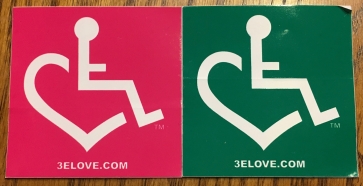


Typically I would put this link (below) under the page on this blog “SCI Of Interest.” However, as I look forward to the arrival of our first grandchild, a little girl, I am thinking back on the hopes and dreams I had of being your grandma extraordinaire. A grandma who made her a quilt, traveled to her new home to help her Mommy and Daddy around the house so they could bond with you, and a grandma who would pick you up, cuddle you, and read you book after book after book so I could help you become literate and a book lover just like your parents, uncles and aunts, and grandparents. There is so much of that I will not be able to do such as sew you a quilt on which I can hand quilt the special touches which are always my favorite part of a quilt – keeping the legacy alive from my great-grandma and my grandma who sewed quilts for me that I still treasure. To sew with the two machines I have; one fairly “new” and one the antique, treddle Singer that Great-Grandma used, had converted to electric power, and on which I learned to sew in 4-H as a ten-year-old; require foot-power which I cannot provide. Yes, I could move the power foot to the table-top and use my right hand but to sew neatly enough for small quilt pieces one needs two hands to align the fabric. I cannot fly out for an extended time to help your mommy and daddy because I cannot climb the steps or provide the help around the house they would need. Fortunately, your other grandma is able to do an extraordinary job at that. I cannot pick you up out of your crib because I need one arm to keep myself upright. I would never risk dropping you. I cannot be there in person regularly to sing you lullabies or read those hundreds of nursery rhymes and stories to you. But, I can, as your daddy reminded me, do other things.
Once again, creative problem solving is essential. I have found options beyond traditional quilting. I can hold you, once you’re placed on my lap, and lovingly rub your back, talk with you, and play silly facial games. I can send you short audio tapes of me reading books so you learn my voice and are enriched by the benefits I, as a former reading specialist, understand. We can FaceTime you so you know my voice and enjoy the stories I select to share especially with you. Now, today on TV, Christopher & Dana Reeves’ son read his words to his younger self of what he learned from his parents. This reminds me that I can be there for you in very special ways – even if not it the dreamed-of, more traditional ones. You will learn about love, learning, family, responsibility, character, giving, faith, self-worth, and so much more from us, your parents, and other family members. You are loved even though you are not yet born.
https://mail.google.com/mail/u/0/#inbox/FMfcgxvxBFlRDSrTRnCjvFJrvqnRpGKj




